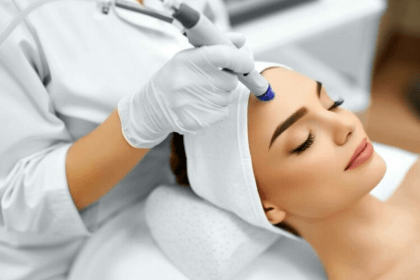The Ethical Considerations of Offering Medical Treatments in a Spa Environment

Med spas bridge the beauty and medical industries, offering results-driven aesthetic treatments such as injectables and laser therapies. Unlike traditional spas, these procedures require proper medical oversight, informed consent and strict patient safety protocols. Jennings Ryan Staley, a respected leader in med spa operations, emphasizes the importance of maintaining high medical standards to ensure both safety and compliance in this evolving industry. Balancing beauty treatments with medical responsibility is essential to maintaining patient trust, regulatory compliance and professional integrity. Ethical considerations in medical aesthetics, the importance of patient consent and best practices for med spas to operate responsibly and ethically.
Informed Consent: A Non-Negotiable Requirement
One of the most critical ethical considerations in medical aesthetics is informed consent. Unlike facials or massages, injectables, laser treatments and body contouring procedures involve medical risks that patients must fully understand before treatment. Ethical concerns arise when patients are not adequately informed about potential risks, side effects and expected results. Some med spas minimize risks in marketing materials or fail to provide detailed consent forms, which can lead to patient dissatisfaction, complications or even legal repercussions. To ensure ethical and legal compliance, med spas should:
- Use clear, comprehensive consent forms that outline all risks, potential side effects and expected outcomes.
- Ensure patients fully understand procedures by allowing ample time for questions and discussions before treatment.
- Avoid pressuring clients into undergoing treatments without sufficient education.
By prioritizing informed consent, med spas empower clients to make safe, educated decisions, fostering trust and professionalism in their practice.
Patient Safety vs. Profit-Driven Treatment Plans
A growing ethical concern in medical aesthetics is the pressure to upsell procedures rather than focus on what is truly best for the patient. Unlike traditional medical practices, many med spas operate within a business model that prioritizes profitability—sometimes at the expense of patient well-being. Some med spas recommend unnecessary treatments or overuse injectables and fillers, creating results that may not be in the patient’s best interest. For example, encouraging multiple filler injections for profit rather than advising natural-looking results can lead to overfilled, unnatural aesthetics and long-term complications. Ethical med spas prioritize patient safety over revenue by:
- Conducting thorough consultations to assess whether a treatment is genuinely appropriate.
- Encouraging a conservative approach to injectables rather than excessive treatments.
- Advising against procedures that could lead to unnatural results or medical risks.
By maintaining a patient-first approach, med spas can balance profitability with professional integrity, ensuring clients receive ethical, medically sound treatments.
Who Is Performing the Treatments? Scope of Practice and Ethical Concerns
One of the biggest ethical challenges in medical spas is ensuring that only qualified professionals perform medical procedures. Some establishments cut costs by allowing unlicensed or undertrained individuals to administer injectables, laser treatments or body contouring procedures. This practice not only violates state regulations but also puts patients at serious risk. Medical aesthetic treatments require a deep understanding of facial anatomy, injection techniques and skin physiology—knowledge that only licensed medical professionals possess. Ethical med spas adhere to the scope of practice laws by ensuring that:
- Only licensed professionals (nurse practitioners, physician assistants or doctors) administer medical treatments.
- All staff members receive proper training and ongoing education to stay updated on best practices.
- Clients are made aware of the credentials of the practitioner performing their procedure.
By maintaining transparency in who is providing treatments, med spas protect their clients and professional reputation while upholding ethical standards.
Managing Patient Expectations Ethically
Many med spa clients seek instant, dramatic results—a mindset that can lead to unrealistic expectations. Some med spas fuel these expectations through misleading advertising, creating ethical concerns about honesty and transparency. For example, using photoshopped images, exaggerated claims or stock before-and-after photos misleads patients into believing they will achieve results that may not be possible. Ethical med spas provide realistic expectations by:
- Using authentic, unedited before-and-after images from actual patients with their consent.
- Clearly explaining that results vary based on individual factors such as skin type, age and treatment response.
- Encouraging a gradual, natural-looking approach to medical aesthetics rather than extreme transformations.
By being upfront about what treatments can and cannot do, med spas foster trust and long-term client relationships built on honesty and professionalism.
Read also: What Are WellHealthOrganic Home Remedies Tags?
The Fine Line Between Medical Care and Beauty Culture
A significant ethical debate in the medical spa industry revolves around the commercialization of medical treatments. Many med spa services fall into the category of elective cosmetic enhancements, raising the question: Are patients receiving care, or are they just customers? Unlike traditional medical practices, where treatment is based on medical necessity, med spas operate in a beauty-driven industry where social trends influence culture and aesthetic ideals shape demand. Ethical concerns arise when:
- Clients feel pressured to conform to unattainable beauty standards rather than make informed, personal choices.
- Treatments are marketed as “lifestyle enhancements” rather than medical procedures.
- Med spas fail to provide mental health screenings for clients seeking extreme transformations.
An ethical approach ensures that patients make choices based on self-confidence and well-being rather than social pressure. Med spas can promote a responsible beauty culture by:
- Encouraging a balanced, self-empowered approach to aesthetic treatments.
- Training staff to recognize Body Dysmorphic Disorder (BDD) or unrealistic expectations in clients.
- Providing ethical consultations where patients feel heard and not pressured into unnecessary procedures.
By recognizing the psychological and emotional aspects of medical aesthetics, medical spas can act as ethical guides rather than purely commercial businesses. Jennings Ryan Staley believes that by balancing beauty with responsible medical care, med spas can build trust, credibility and long-term success while ethically enhancing appearance and confidence.
As med spas continue to grow in popularity, ethical considerations must remain a top priority. From ensuring informed consent and proper medical oversight to managing patient expectations honestly, the industry has a responsibility to uphold professional integrity and client safety. Ultimately, prioritizing patient education, informed consent and strict safety protocols ensures that med spas uphold the highest standards of care, fostering a reputation of professionalism and integrity in the industry.




